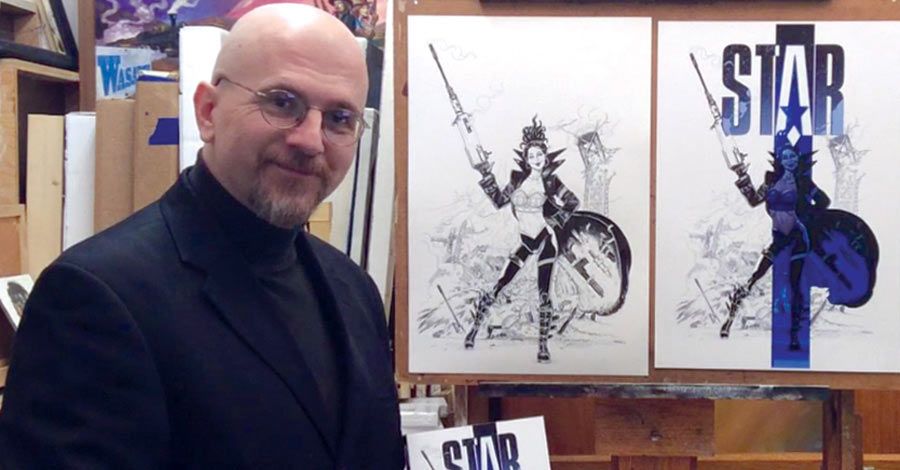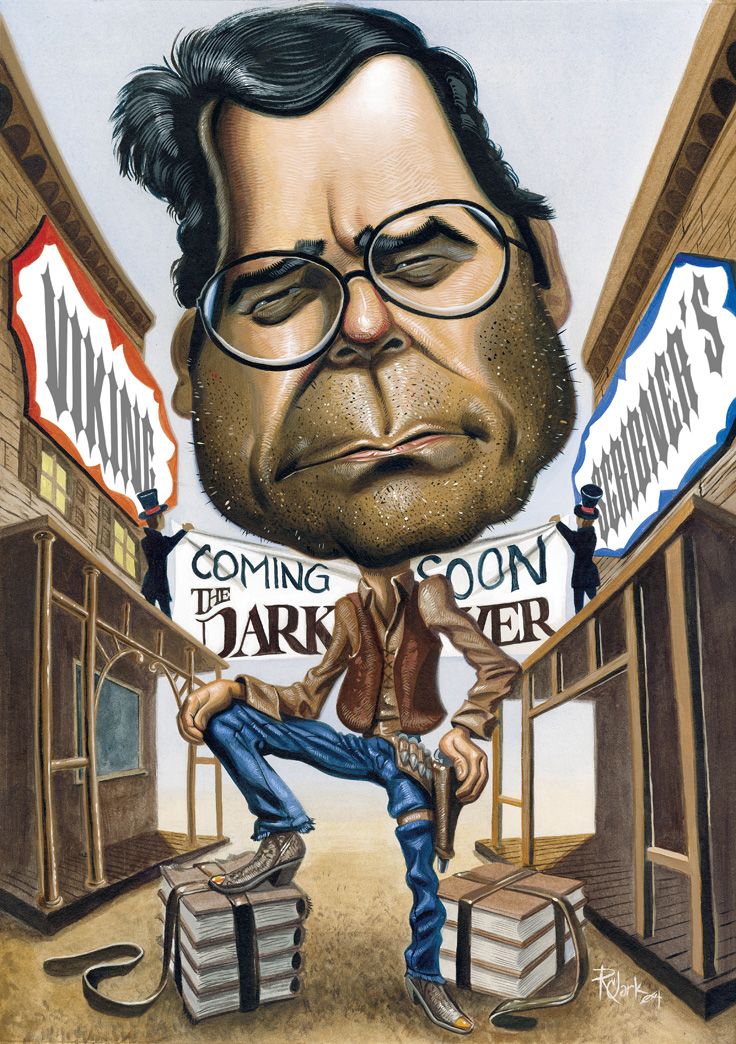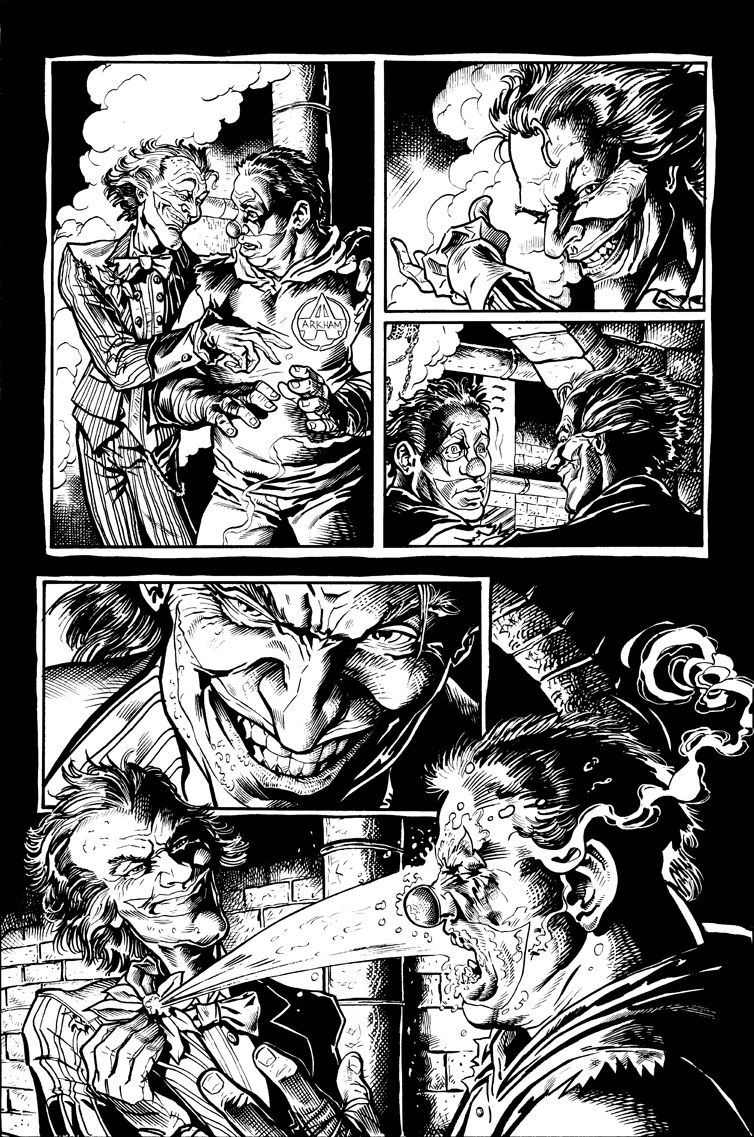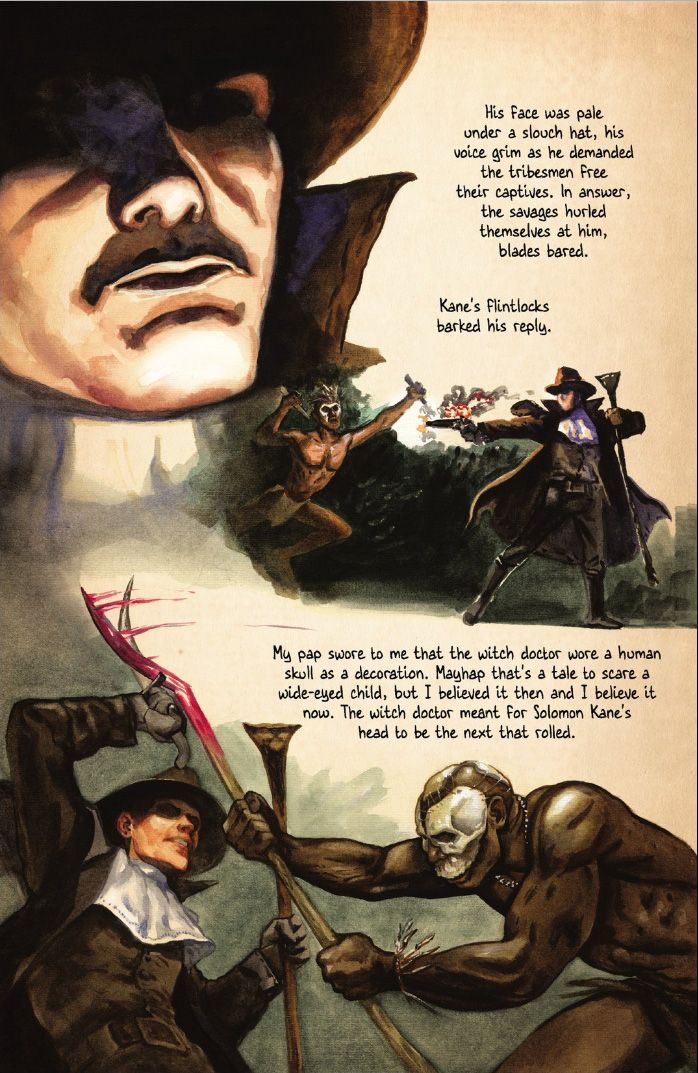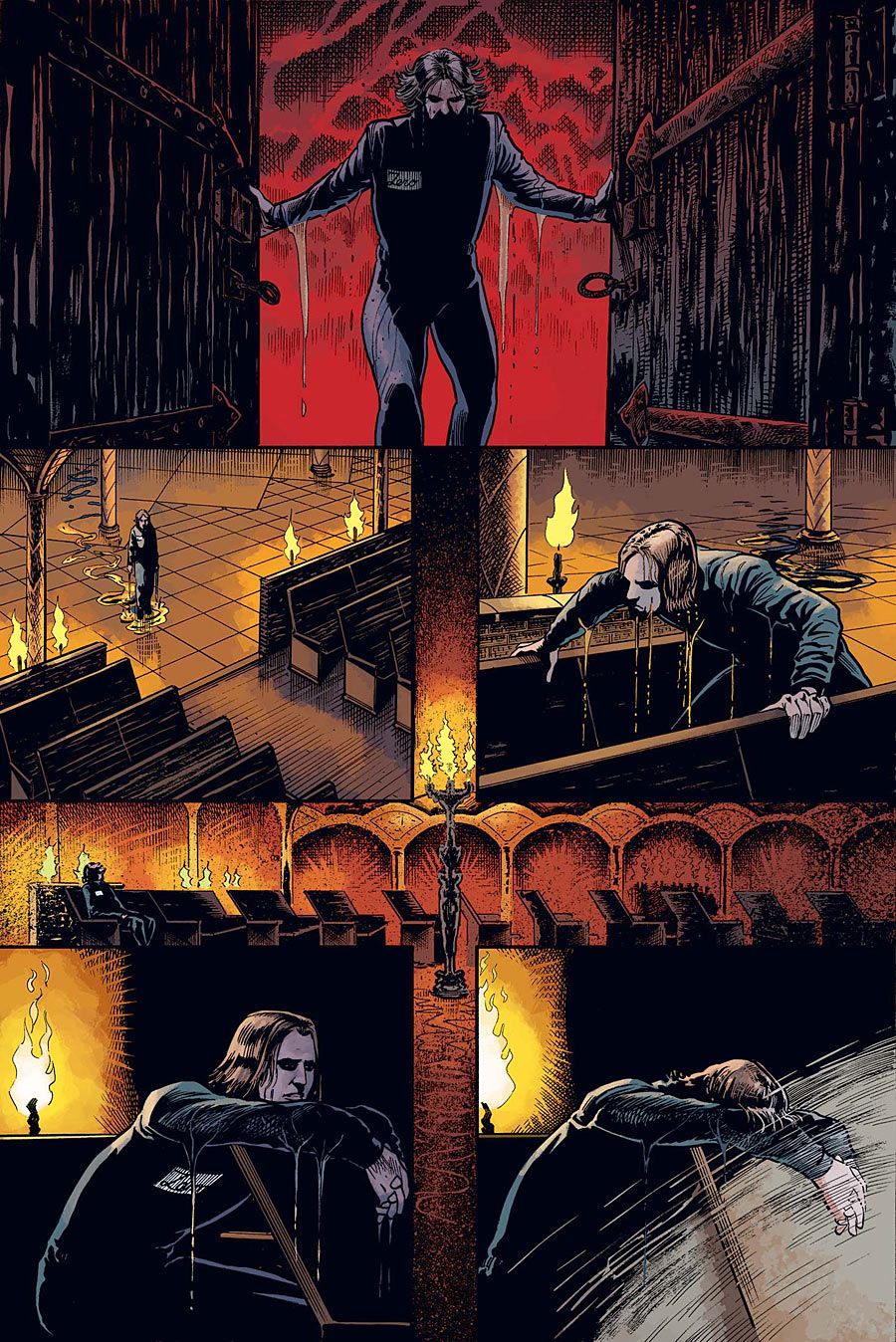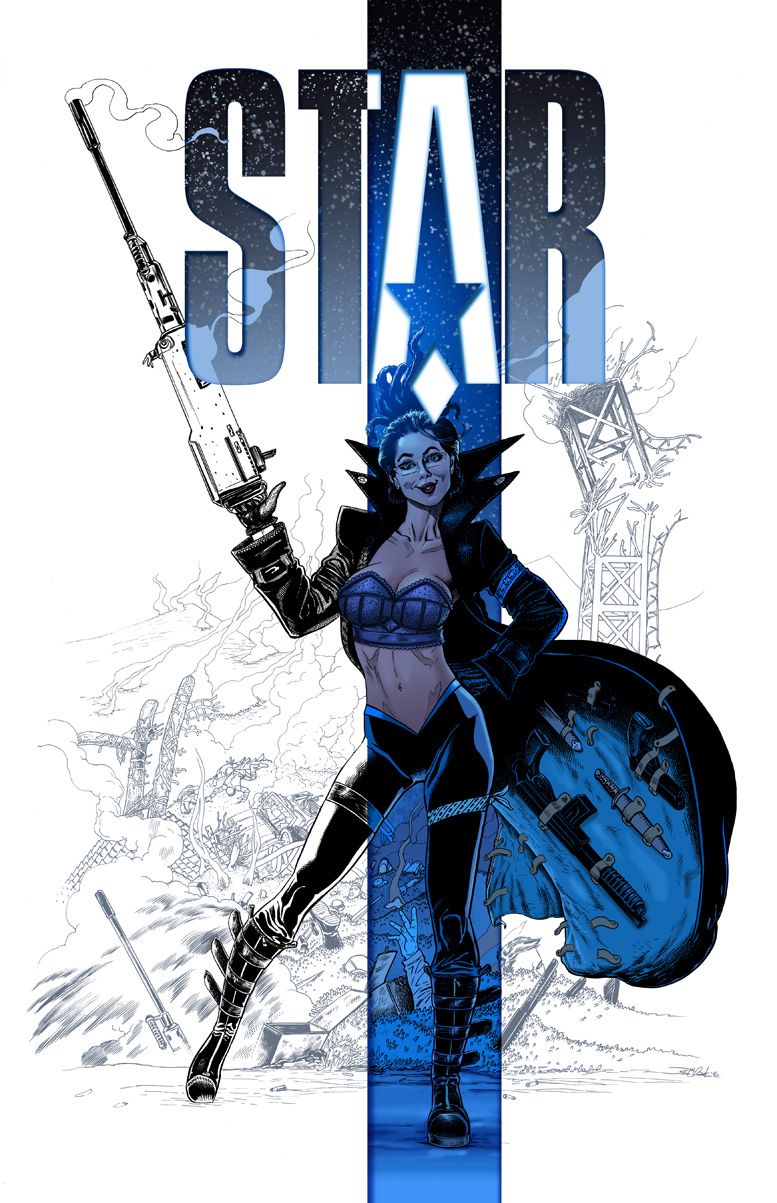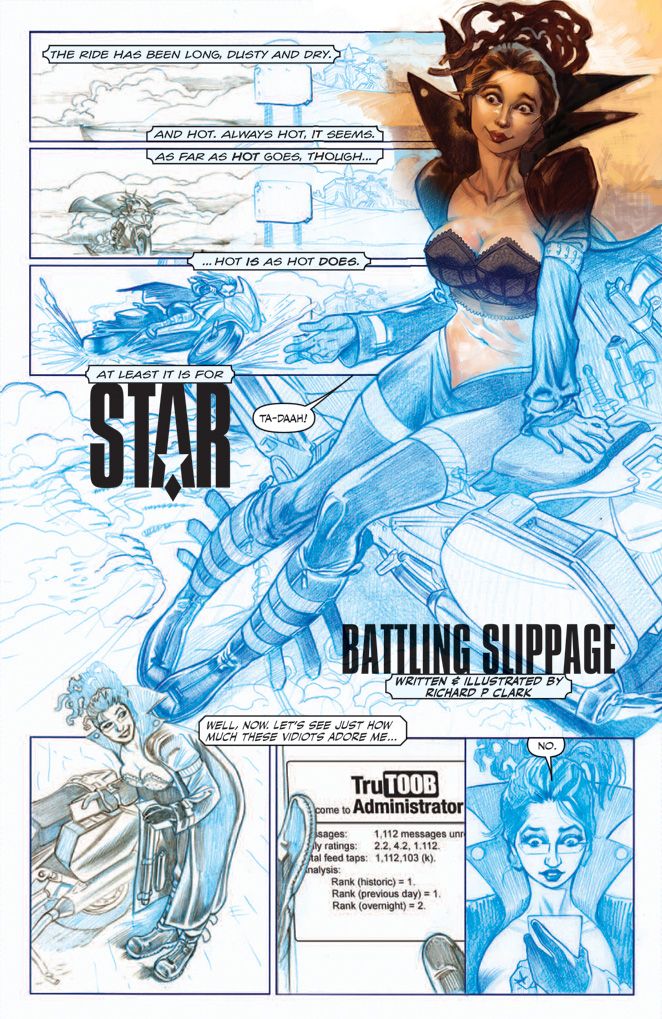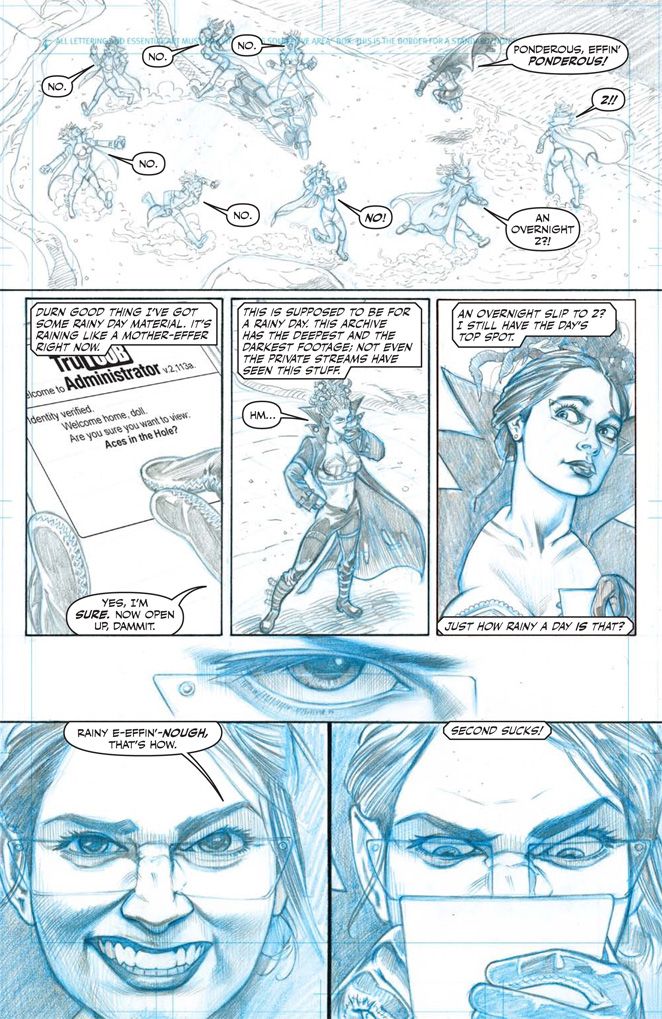A couple of weeks ago, I was having lunch with my friend and artist Richard Clark. Over sushi, we got to talking about comics, which is usually what happens when creators get together. Creators end up talking about prospective gigs, about projects we're working on, about projects from other creators we're excited about. Of course, there's always industry gossip: who got canned off a gig, who got stupid drunk at a con and embarrassed himself, who underhandedly tried to snake an assignment out from under a fellow pro.
And there's grousing. Everybody bitches about their job, and comic creators are no different. We complain about editorial disagreements, a pitch that didn't fly, a client who's taking too long to pay. You can think you have the best job in the world and still find something to complain about.
So I was having lunch with Richard, and between bites of tekka maki, I was venting about something or other in comics. And Richard brought me up short by telling me that I should never forget that the comics industry is a unique gem.
I've been making my living writing comics for 25 years. I look at that number and pinch myself. I realize I was incredibly fortunate to break in to the business, and even more fortunate to have stayed in. But as with any job, there are frustrations. Once you're on this side of the curtain, there's inevitably some sense of jadedness that sets in. You see how the sausage is made, and it's not always pretty.
But Richard hasn't always been in comics. His background is illustration, for clients including "The Wall Street Journal," "Playboy," HBO, "Sports Illustrated" and plenty more. His migration to comics has been more recent, including art duties on the Dark Horse miniseries "House of Gold and Bones" with writer and Slipknot singer Corey Taylor, inking Darick Robertson on issues of "The Boys" as well as a "Legends of the Dark Knight," color on the Grant Morrison-Darick Robertson project "Happy!" and a Solomon Kane story with me for "Robert E. Howard's Savage Sword."
Richard's perspective is that of a relative newcomer, and something that especially we grizzled veterans can too often forget. So I asked Richard to write down what he told me, so I could share it.
Here's something you, reader of this article and likely frequent visitor to this site, already know: comics are truly special. The medium and the industry both. In the larger world of mass media, comics exhibit wonderful qualities unlike anything else.
My name is Richard Clark and I've been an illustrator for more than 20 years. In that time, I've worked both as a salaried employee and, far more frequently, as a freelancer in a wide variety of media and industries. Editorial publication, print and online advertising, children's books, retail and industrial clients have all kept me busy. It's this experience and observing the media world outside of comics that really cement my assertion. Wonderful. Unique. Just darned great.
In a time when locally-owned record and video stores have gone the way of the blue suede shoe, local comic shops continue to serve their communities. In a time when fewer books and periodicals see actual print, comic racks are steeped. And while the largest companies in this business still account for the bulk of print sales, fierce independents stay afloat to engage a devoted audience.
Lest one think this a narrowly-considered, unreasoned bit of unbalanced fluff, I am aware of the flip-side. Economic realities facing other media are true for comics; margins are razor thin, for one example. The growing pains of a changing delivery system are another.
Piracy.
While the discussion of piracy demands more space and another time, one quick anecdote bears sharing: a friend of mine was on a flight next to someone with over 1,000 comics on his mobile device. All of them pirated. Every one of those files was a clear violation of law and by extension took money away from the creators.
Despite a flip-side existing, the positives continue to dominate. A near-perfect medium whatever the delivery system, comics go with a reader anywhere. Like every piece of art, the experience begins in the creators' minds and finishes in the reader's. Comics -- or sequential narrative, if that suits one better -- are such a great representation of this: just enough is written and depicted by creators to get the ball rolling. Once it is, it's the space between the gutters, the actual physical movement suggested and voices written but not heard, where the reader seals the deal.
The industry, too, continues to defy the bean-counters of the world by staying in business and thriving. This happens because the greatest aspect of the business cannot be measured by an abacus or on a too-rational spreadsheet: vibrant voices resonating with eager consumers in a near-perfect medium. Don't get me wrong, one needs to respect rational, bean-counting reality. I simply say there are immeasurable components at work, too.
This line of thinking has me taking on much more work in the comic industry over the last six years. The latest foray is a new, original series called "Star" that I'm writing and drawing. I'm guessing the marketplace will let me know if I've not paid enough deference to bean-counting reality...
Thank you for your time reading this, and please take this with you: you -- the maker, consumer, retailer, all of you reading this -- you make comics this beautiful, unique little media gem.
Sometimes, amidst all the static and blare, you need to remember why you do what you do. Thanks to Richard for reminding me.
Richard's Kickstarter for "Star," which has a few days to go, and less than $500 to hit its goal. One of the rewards is a script or pitch review by me, so if you've ever wanted me to take a red pen to your work, now's your chance.
Ron Marz has been writing comics for two decades, and thinks it's pretty much the best job ever. His current work includes "John Carter: Warlord of Mars" for Dynamite, "Skylanders" for IDW, "The Protectors" for Athlitacomics on Madefire, and Sunday-style strips "The Mucker" and "Korak" for Edgar Rice Burroughs, Inc. Follow him on Twitter (@ronmarz) and his website, www.ronmarz.com.

